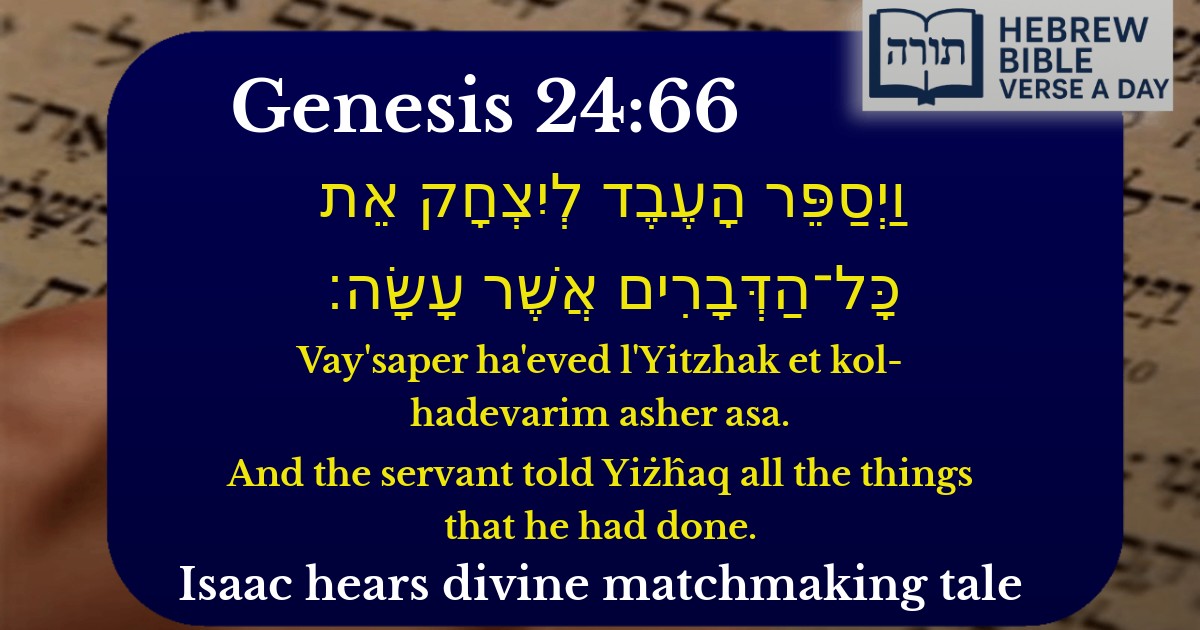Join Our Newsletter To Be Informed When New Videos Are Posted
Join the thousands of fellow Studends who rely on our videos to learn how to read the bible in Hebrew for free!
Hebrew Text
וַיְסַפֵּר הָעֶבֶד לְיִצְחָק אֵת כָּל־הַדְּבָרִים אֲשֶׁר עָשָׂה׃
English Translation
And the servant told Yiżĥaq all the things that he had done.
Transliteration
Vay'saper ha'eved l'Yitzhak et kol-hadevarim asher asa.
Hebrew Leining Text
וַיְסַפֵּ֥ר הָעֶ֖בֶד לְיִצְחָ֑ק אֵ֥ת כׇּל־הַדְּבָרִ֖ים אֲשֶׁ֥ר עָשָֽׂה׃
וַיְסַפֵּ֥ר הָעֶ֖בֶד לְיִצְחָ֑ק אֵ֥ת כׇּל־הַדְּבָרִ֖ים אֲשֶׁ֥ר עָשָֽׂה׃
🎵 Listen to leining
Parasha Commentary
📚 Talmud Citations
This verse is not quoted in the Talmud.


Context in Parashat Chayei Sarah
The verse (Bereshit 24:66) appears at the conclusion of Avraham's servant Eliezer's mission to find a wife for Yitzchak. After successfully securing Rivka's hand in marriage, Eliezer recounts his journey to Yitzchak. This moment marks a pivotal transition in the narrative, as Yitzchak and Rivka are united.
Rashi's Commentary on the Servant's Report
Rashi explains that Eliezer did not merely give a dry account of events but recounted "all the things that he had done" in detail—including the miracles he witnessed, such as Rivka's water rising toward him (based on Midrash Bereshit Rabbah 60:15). This emphasizes Divine Providence in orchestrating the match.
The Significance of "All the Things"
Yitzchak's Role in the Narrative
The verse highlights Yitzchak's passive role in choosing his wife, contrasting with Avraham's active involvement. The Kli Yakar notes that this reflects Yitzchak's trait of Gevurah (restraint), as his spiritual perfection made him reliant on Divine guidance rather than personal initiative.
Lessons in Hashgacha Pratit (Divine Providence)
The Sforno emphasizes that Eliezer's detailed report reinforced the idea that Rivka's selection was not coincidental but orchestrated by Hashem. This theme is central to the narrative, as the future of the Jewish people hinges on this Divinely-guided union.